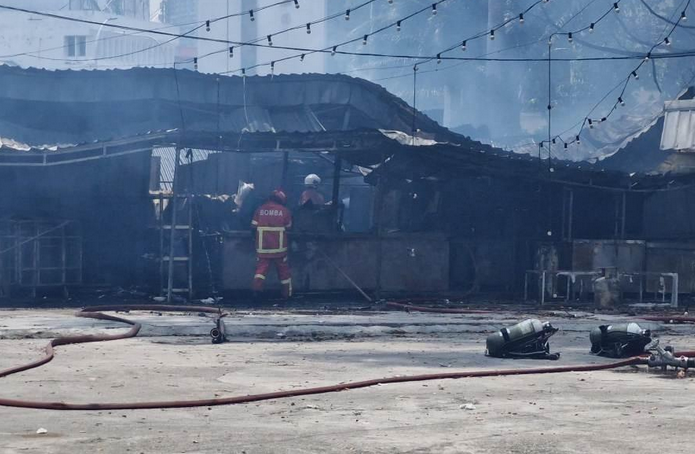KUALA LUMPUR: The sanctions imposed on four Malaysian-based companies accused of helping Iran’s production of drones in December last year have been impactful, says US Treasury’s undersecretary for terrorism and financial intelligence Brian Nelson.
In an interview with a group of selected members of local media, Nelson said that the goal of such sanctions was to encourage behavioural change, adding that the sanctions are still in place.
"This is a powerful tool that we find is effective, in the context of most of this activity is designed to drive profit or provide capital for ongoing operations, and our sanctions have the ability to disrupt both of those features.
"So from that perspective, we think of course that it's impactful," he said during the interview at the American Malaysian Chamber Of Commerce (Amchan Malaysia) headquarters on Thursday (May 9).
ALSO READ : M'sia ready to engage with US on claims of money flowing to Iran and Hamas, says Saifuddin
The trip comes as the US Treasury Department increases its focus on financing for militant groups routed through Southeast Asia, including through fundraising efforts and illicit sales of Iranian oil.
In December, the US Treasury Department imposed sanctions on four Malaysia-based companies it accused of helping Iran’s production of drones. Washington accuses Iran of supplying deadly drones to what it says are terrorist proxies in the Middle East, and to Russia for use in Ukraine.
Earlier, Nelson confirmed that he had a meeting with Home Minister Datuk Seri Saifuddin Nasution over the matter.
Nelson also confirmed that his country’s security forces had been monitoring ship-to-ship oil transfers in Malaysian waters.
"I would only say we have seen and we’ve promulgated some sort of guidance to the (Malaysian) marine sector about the type of services that they are engaging in.
“These are ship-to-ship transfers, particularly at night, which we see from time to time.
“They are really designed to obfuscate the origin of the commodity, in this case, Iranian oil,” said Nelson.
He also noted that one of the things that he wanted to highlight during this trip was the need to push out that type of guidance to the key operators that would provide such services to support these ship-to-ship transfers.
“So that’s like the port administrators, the tugboat companies, and then all of the relatively expensive infrastructure that it takes to pull these things off.
“And typical markers that we see are like when they turn off their location device and when they’re trying to obscure the name of the ship, or they falsify or forge critical documents about the commodities that were issued.
“So, we are alerting our industry about these practices.
“We’re certainly going into jurisdictions where we’re concerned and if Iran is engaged in the ship-to-ship transfers, we want to make sure that we’re doing everything we can to alert both to the threat but also to the sort of critical mitigating steps that each industry actor can and should take in order to prevent those type of practices from continuing,” he added.










































